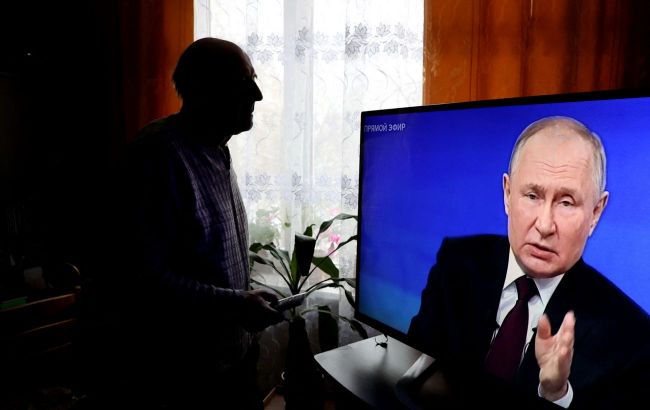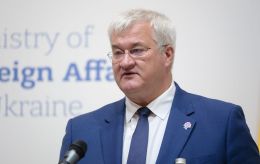European Parliament urges EU to impose sanctions on Russia for disinformation and propaganda
 Archive photo: The European Parliament has called on the EU to impose sanctions on Russia (Getty Images)
Archive photo: The European Parliament has called on the EU to impose sanctions on Russia (Getty Images)
The European Union is to impose restrictions on media organizations and individuals responsible for spreading Russian propaganda as part of a new package of sanctions, according to the website of the European Parliament.
It is noted that the members of the European Parliament (MEP) adopted a resolution that strongly condemns the Kremlin's efforts to interfere with and undermine European democratic processes.
"MEPs want EU and member state leaders to deal with Russian interference efforts, not just in the EU institutions but across the Union. There is, they argue, a sense of urgency and resolve to this given the approaching European elections on 6-9 June 2024," the European Parliament said in a release.
The European Parliament also expressed concern about the recent interrogation of Maximilian Krach, a leading MEP from the Alternative für Deutschland, by the US Federal Bureau of Investigation on suspicion of receiving money from Kremlin agents, as well as the arrest of his assistant in Germany on April 23, 2024, on charges of being a Chinese spy.
Russia needs to be held accountable for its propaganda
The deputies propose to strengthen parliamentary security measures, namely to enhance the culture of internal security, including thorough internal investigations to assess possible cases of foreign interference and full compliance with the system of internal sanctions.
Among other things, the European Parliament called on the EU Council to include Kremlin-backed media outlets, other broadcasting and media organizations, as well as those responsible for propaganda and disinformation campaigns in the EU, in the future 14th package of sanctions against Russia.
As an example, they recalled that the Czech Republic has imposed sanctions on the Voice of Europe, as well as pro-Russian oligarch Viktor Medvedchuk and his close associate Artem Marchevskyy.
Russian influence in Europe
Recently, Polish intelligence services exposed individuals who were engaged in discrediting Ukraine. Prior to that, the Czech Republic announced the malicious activities of several individuals who were promoting Russian propaganda in Europe.
After that, Belgian Prime Minister Alexander de Croo said that Russia bribed members of the European Parliament to spread propaganda.
Recently, European Parliament President Roberta Metsola said that Russia, China, and Iran could spread disinformation during the European Parliament elections in early June.

